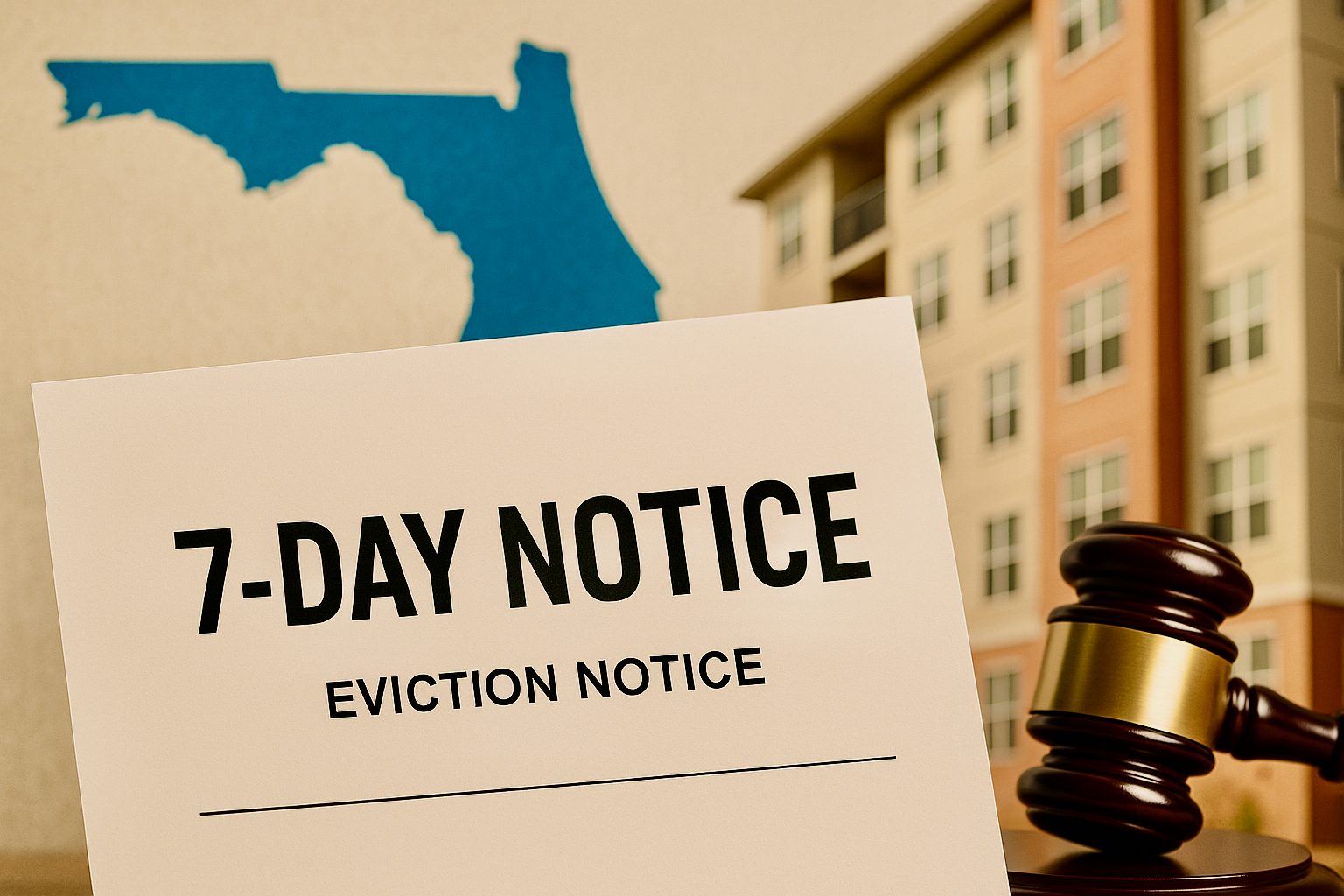Seven-Day Cure vs. Seven-Day Unconditional Quit Notices in Florida
When a tenant violates their lease in Florida, landlords often assume eviction is automatic. But before filing anything with the court, Florida law requires landlords to serve the appropriate seven-day notice. Choosing the wrong notice can delay the case, increase lost rent, or even get the lawsuit dismissed.
At 954 Eviction Attorneys, we help landlords and property managers throughout Florida determine which notice applies and ensure it is drafted correctly under Chapter 83 of the Florida Statutes. Understanding the difference is critical.
What Is a Seven-Day Notice?
A seven-day notice is a written legal notice issued by the landlord informing the tenant of a lease violation. Florida law recognizes two types:
• Seven-Day Notice to Cure
• Seven-Day Unconditional Quit Notice
The correct notice depends on the nature of the violation and whether it can reasonably be fixed.
Seven-Day Notice to Cure
A seven-day cure notice applies when the tenant’s violation can be corrected. The goal is to give the tenant a final opportunity to comply with the lease.
Common Examples
- Unauthorized pets or occupants
- Noise complaints or disturbances
- Failure to maintain the property
- Minor lease or community rule violations
Under section 83.56(2), Florida Statutes, the notice must clearly describe the violation and give the tenant seven calendar days after delivery to cure the problem. If the tenant fixes the issue within that timeframe, the tenancy continues.
Seven-Day Unconditional Quit Notice
A seven-day unconditional quit notice is used when the violation is serious, repetitive, or cannot be remedied. In these situations, the lease is considered terminated, and the tenant must vacate.
Situations That Commonly Warrant an Unconditional Quit Notice
- Destruction or significant damage to the property
- Criminal or drug-related activity
- Violence, threats, or dangerous conduct
- Repeating the same violation within 12 months after receiving a proper prior notice
Here, the tenant does not receive an opportunity to correct the issue. If they do not leave within seven days, the landlord may file an eviction action.
Why the Distinction Matters
Florida courts are strict about statutory compliance in eviction cases. Serving the wrong notice or incorrectly drafting it can:
- Restart the eviction timeline
- Delay possession of the property
- Increase damages and unpaid rent
- Lead to dismissal of the case
- Create unnecessary attorney’s fees
Many eviction setbacks begin with an improper notice, not a courtroom dispute.
Tips for Landlords Before Issuing a Notice
- Review the lease and applicable statutes
- Keep documentation, including photos, videos, emails, and witness accounts
- Make sure the notice wording is legally compliant
- Serve the notice properly
- Avoid self-help actions such as shutting off utilities or changing locks
Because every case is fact-specific, landlords should speak with an attorney before issuing a seven-day notice—especially where criminal activity, retaliatory claims, discrimination concerns, or safety issues may exist.
Protect Your Rental Property
Online templates and guesswork often lead to costly mistakes. At 954 Eviction Attorneys, we evaluate the facts, identify the appropriate notice, draft it correctly, and immediately proceed with eviction when necessary. We represent residential and commercial landlords across Florida.
For guidance on which seven-day notice applies to your situation, contact 954 Eviction Attorneys at 954.323.2529. Offices in Broward and Palm Beach. We serve all of Florida’s 67 counties.


